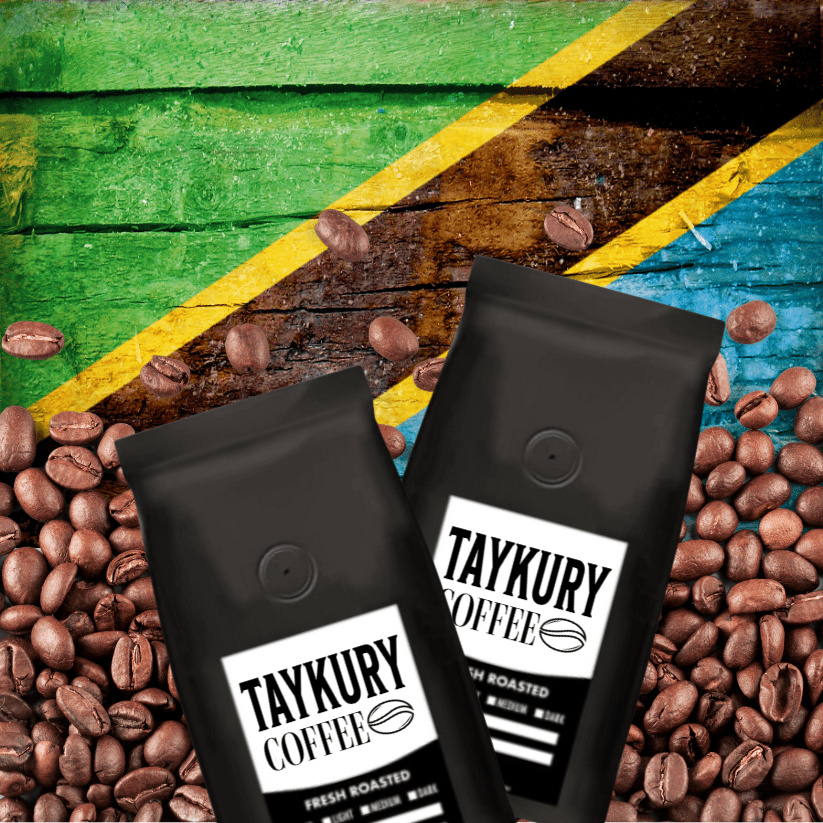TAYKURY COFFEE
Tanzania/TAYKURY COFFEE®
Tanzania/TAYKURY COFFEE®
Couldn't load pickup availability
Tanzania Coffee: A Journey Through Flavor and Rich Tradition
Introduction
When it comes to coffee, few places evoke the same sense of adventure and rich heritage as Tanzania. Nestled in East Africa, this vibrant country is known for its breathtaking landscapes and, of course, its exceptional coffee. In this article, we'll take a deep dive into the world of Tanzania coffee, exploring its history, cultivation practices, flavor profiles, brewing methods, and much more. So grab your favorite mug and get ready to embark on a tantalizing journey through the world of Tanzanian coffee.
1. History
Coffee has a long and storied history in Tanzania. The country's coffee industry dates back to the late 19th century when German colonists introduced coffee cultivation to the slopes of Mount Kilimanjaro. Since then, coffee production has become an integral part of Tanzania's economy, with smallholder farmers playing a crucial role in its growth and development.
2. Cultivation
Tanzania's unique geographical features provide an ideal environment for coffee cultivation. The country's rich volcanic soil, high altitudes, and favorable climate contribute to the exceptional quality of Tanzanian coffee beans. Smallholder farmers employ traditional methods, often handpicking the ripest cherries to ensure the finest flavor in every cup.
3. Varieties
Tanzania is renowned for its diverse coffee varieties. Arabica beans dominate the coffee landscape, with the Bourbon, Typica, and Kent varieties being the most common. These varieties bring distinct flavor profiles to the table, ranging from floral and fruity to rich and chocolatey, satisfying a wide range of coffee enthusiasts' palates.
4. Production
Tanzania's coffee production is a labor-intensive process that involves multiple stages. From planting and nurturing the coffee trees to harvesting and processing the cherries, each step requires precision and care. The cooperative system prevalent in Tanzania helps ensure fair practices and supports the livelihoods of local farmers.
5. Processing
After the coffee cherries are harvested, they undergo a meticulous processing method to extract the beans. The two primary processing methods employed in Tanzania are the washed (wet) process and the natural (dry) process. Each method imparts distinct flavors and characteristics to the final cup of coffee.
6. Flavor
The flavor profile of Tanzanian coffee is as diverse as the country itself. Depending on the region and the processing method, coffee can offer a symphony of flavors, including bright citrus notes, floral undertones, wine-like acidity, and hints of chocolate and spices. It's a sensory experience that delights and surprises with every sip.
7. Brewing
To truly savor the flavors of Tanzanian coffee, the brewing method plays a crucial role. Whether you prefer a pour-over, French press, or espresso, understanding the nuances of brewing can elevate your coffee experience. We'll explore various brewing techniques and
Certification/Grading: AB
Roast: Medium-light
Tasting Profile: Pear, floral, jasmine, strawberry.
Grower: Small cooperative farmers in the Mbeya area
Variety: Bourbon & Kent
Region: Mbeya Region of Tanzania
Altitude: 1200-1900 M
Soil Type: Clay Minerals
Process: Fully washed and dried on raised beds
Shipping & Returns
Shipping & Returns



SPECIALITY COFFEES
At TAYKURY COFFEE we are amongst the best at using the finest specialty coffees, paying the utmost attention to roasting to get the most out of each one. We work artisanally, preserving all its qualities and respecting the entire process to be able to offer you coffees of genuine origin, organic coffees as well as blended coffees.


